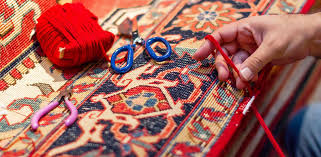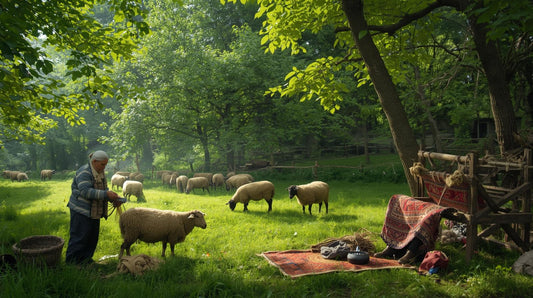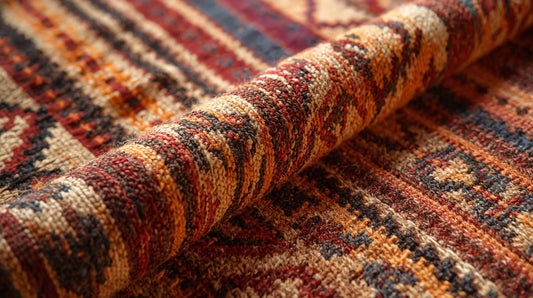How to Care for Your Precious Handmade Rugs While Storing Them: Long-Term Storage Conditions

To preserve the beauty of your valuable Cappadocia Rug Collection handmade rugs for many years, it's essential to follow the right conditions and methods for long-term storage. Here's what you need to know:
1. Professional Cleaning and Pest Control Before Storage
Before storing your rugs, you must have them professionally cleaned. Home cleaning or dry cleaning can damage the rug's fibers and colors. Professional cleaners use methods appropriate for the rug's structure to provide a deep clean and take measures to prevent mold and moth infestations.
-
Dust and Dirt Removal: Ensure all dust and dirt accumulated on the rug's surface and back are thoroughly removed. Regular vacuuming and brushing prevent the breeding of moth larvae.
-
Drying: After cleaning, ensure the rug is completely dry. Moisture invites mold and mildew.
-
Pest Control: Take preventive measures against moths and other insects. Professional cleaners can apply pest repellents. If you prefer natural protection, you can place sachets of lavender, cedar wood pieces, or natural repellents like mint near the rug.
2. Ideal Storage Environment
The conditions of the storage environment are critical for the longevity of your rug.
-
Temperature and Humidity: The storage area should maintain a temperature between 5°C and 25°C, with a constant humidity level around 60%. Excessive humidity leads to mold and mildew, while overly dry conditions can make fibers brittle.
-
Light: Keep your rug away from direct sunlight. Sunlight can cause colors to fade and fibers to deteriorate. Also, avoid prolonged exposure to fluorescent lights or strong light sources. Dimly lit rooms, perhaps with red or orange light, are preferable.
-
Ventilation: The storage space should be well-ventilated. Closed and stuffy environments create suitable breeding grounds for pests and can lead to moisture buildup.
3. Proper Packaging Method and Materials
Correctly packaging your rugs is vital for preserving their physical integrity.
-
Rolling: Storing your rugs rolled is the ideal method. This prevents creases and permanent folds. When rolling, ensure the pile side of the rug faces inwards. Roll it smoothly and evenly, without pulling it too tightly. If possible, store the rolled rug vertically on its end.
-
Folding: If rolling isn't an option and the rug must be folded, fold it with the back side facing up (pile side down). Avoid sharp creases and apply gentle pressure with each fold. However, for long-term storage, rolling is always preferred over folding.
-
Packaging Materials: To protect your rug from dust and pests, use breathable fabrics. Muslin or cotton cloths allow air circulation while protecting the rug. Never use plastic covers or vacuum-sealed bags, as these can trap moisture, leading to mold and fiber damage.
4. Protection Against Moths and Other Insects
Pests are one of the biggest enemies of handmade rugs.
-
Natural Repellents: Instead of mothballs, use cedar wood blocks or lavender sachets as natural repellents. Mint, rosemary, thyme, and bay leaves can also be effective. These natural scents deter moths and other insects from your rug.
-
Physical Inspection: Periodically brush and inspect your rug. Moth traps can help break the breeding cycle by catching male moths.
-
Cleanliness: Ensure your rugs are not dirty before storing them. Dirty textiles are more attractive to moths.
5. Elevated Storage and Air Circulation
Preventing direct contact with the floor and ensuring adequate air circulation in the storage area is key to avoiding moisture and pest problems.
-
Use Pallets or Shelving: Instead of placing your rug directly on the floor, store it on pallets or shelves. This prevents moisture from below and allows for air circulation.
-
Ample Airflow: Ensure there's sufficient airflow around your rug.
No comments








0 comments